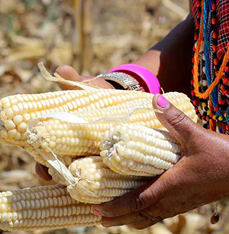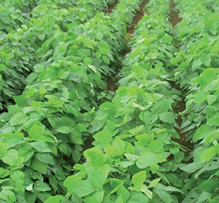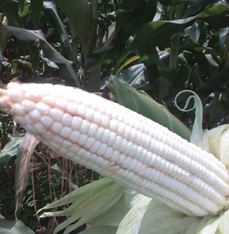Africa Can Feed Itself
 Surrounded by tangled shrubland, Wisdom Mababe’s farm in central Zambia seems incongruously neat. “In 2002, when I started, it was bare bush,” he says. Each year since, he has bulldozed an area the size of 40 football pitches. Maize grows in ordered rows; cattle graze behind a fence. “The land, the water, it’s in abundance,” he gushes. Beyond his fields, the tall grass waves.
Surrounded by tangled shrubland, Wisdom Mababe’s farm in central Zambia seems incongruously neat. “In 2002, when I started, it was bare bush,” he says. Each year since, he has bulldozed an area the size of 40 football pitches. Maize grows in ordered rows; cattle graze behind a fence. “The land, the water, it’s in abundance,” he gushes. Beyond his fields, the tall grass waves.
For most of its history, sub-Saharan Africa has been short of people, not land. In 2011 the World Bank estimated that the region had 200m hectares of suitable land that was not being used for crops—almost half of the world’s total, and more than the cultivated area of America. That potential excites many. “Africa is the future breadbasket of the world,” says Ephraim Nkonya of the International Food Policy Research Institute, a think-tank in Washington, DC.
 Soybeans are a leguminous vegetable of the pea family that grows in tropical, subtropical and temperature climates. It was domesticated at around 11th century in northeast China. It is believed it might have been introduced to Africa in the 19th century by the Chinese traders along the east coast of Africa.
Soybeans are a leguminous vegetable of the pea family that grows in tropical, subtropical and temperature climates. It was domesticated at around 11th century in northeast China. It is believed it might have been introduced to Africa in the 19th century by the Chinese traders along the east coast of Africa. PAN 53 famously known as shanga Ubone in Zambian local dialect is one hybrid seed variety which has surpassed any expectations of both the farmers and researchers at large, time and time again.
PAN 53 famously known as shanga Ubone in Zambian local dialect is one hybrid seed variety which has surpassed any expectations of both the farmers and researchers at large, time and time again.